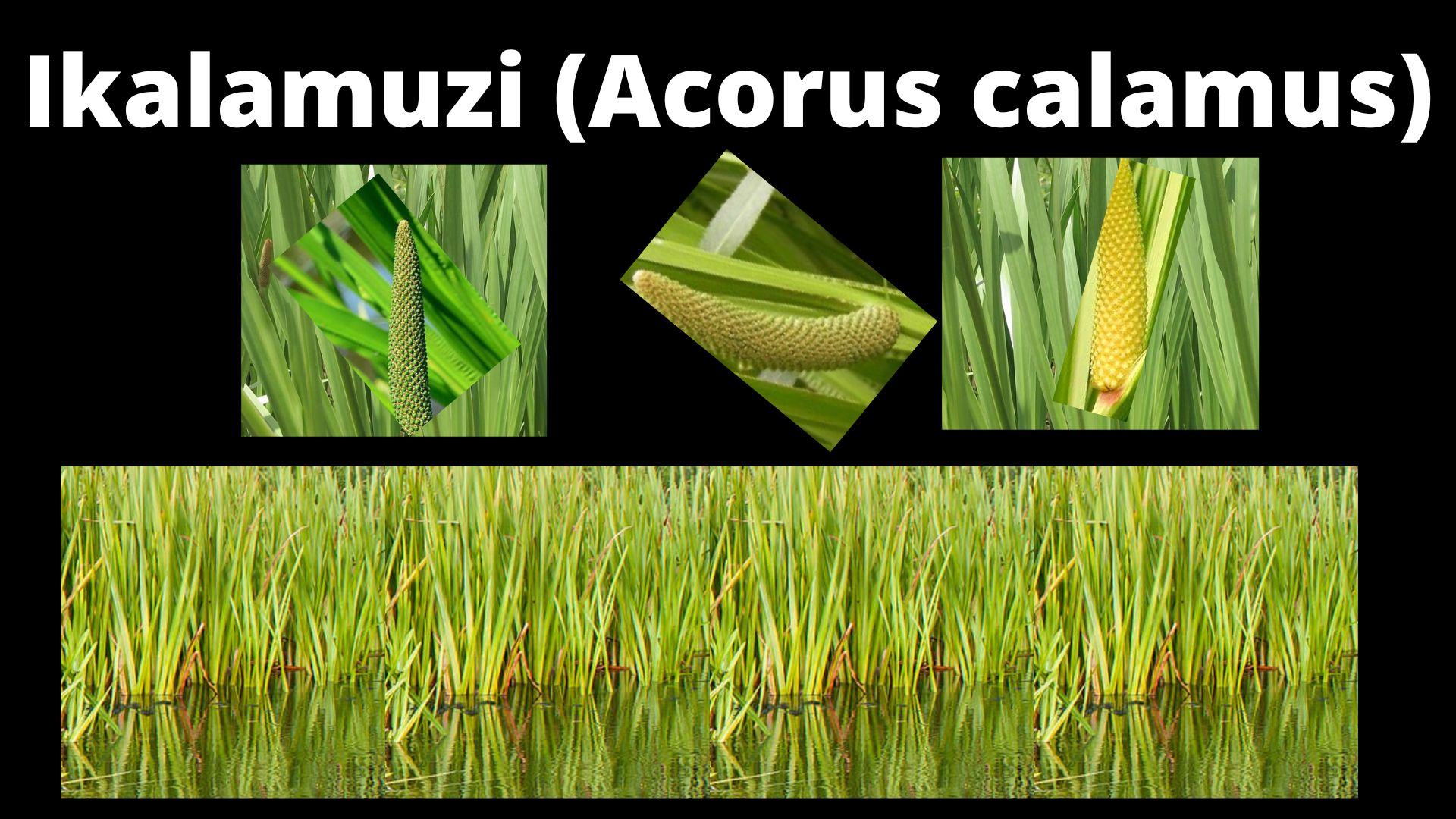Family: Acoraceae
Scientific name: Acorus calamus
Authority: L.
Common names: ikalamuzi (Zulu), sweet flag (English), makkalmoes (Afrikaans)
Plant description
Ikalamuzi, scientifically known as Acorus calamus, is a herb that grows up to 2m in height. The plant is easily identified by its aromatic rhizomes, a rootstalk. The rhizomes and leaves have a cinnamon aroma when crushed. The plant can grow almost anywhere as long as there is enough underground water. It is indigenous to Southeast Asia but is widely distributed in America, Europe, and Africa. It is a globally traded plant that can be used to make traditional medicine remedies, perfumes and oils, and food and drink flavouring.
Uses
The leaves and rhizomes of the plant are the most extensively used parts in traditional medicine. The plant also has a long history of use in many systems of medicine. The rhizome has been used in Chinese and Indian traditional medicine for almost 2,000 years. Other systems that have used the plant include (Ayurveda and Siddha), Unani, Native American, Indonesian, and African traditional medicine.
- In South Africa, the plant is a popular component of the Zulu traditional medicine. Its rhizomes are used to relieve flatulence and treat gastrointestinal disorders.
- In Europe, the juice from the rhizome is used as a tonic and as an aphrodisiac. The fragrant oils from the rhizomes are used as flavourings in alcoholic beverages and food. The plant is also used to treat toothache, respiratory ailments, and inflammation and pain in the joints, tissue, and muscles.
- In aryuveda and siddha medicines, the plant is used as a rejuvenator of the brain and nervous system. The rhizomes exist in various forms, such as powder, balm, enema solution, pills, tonic, and ghee, a clarified butter that is used when cooking.
- The rhizomes are used to treat mental ailments such as epilepsy, loss of memory, hysteria, schizophrenia, insomnia, psychoneurosis, chronic diarrhoea, cough, asthma, fever, and to stimulate appetite.
- The juice from the rhizomes is used as a stimulant that relaxes spasms and is restorative for the brain and nervous system, especially after a stroke.
- The rhizome paste, called vasambu, is mixed with honey and given to babies to help ensure proper brain development and speech ability.
- The juice from the rhizomes stimulates the nervous system to help with depression. The juice also improves speech in stuttering.
- Native American tribes use the plant as an anesthetic for toothache, headache, and diabetes. There have been cases reported of native Americans who were cured from diabetes after chewing the plant for several months.
- In America and Indonesia, the plant is used to treat gastrointestinal disorders such as diarrhoea, colic pain, gas, bloating, and poor digestion.
- Ancient Chinese used the plant to reduce swelling and to treat constipation.
- Ancient Egyptians used the leaves and rhizomes to make perfumes and sacred oils. The plant was also found in the tomb of Pharoah Tutankhamen’s.
In general, the plant is used to treat ailments such as chest pains, cramps, diarrhoea, digestive disorders, flatulence, gas, indigestion, nervous disorder, appetite loss, bronchitis, inflammation and pain, and vascular disorder.
Powdered rhizomes and essential oils are used as an insecticide against fleas and insects.
The plant is added to rice in storage it to prevent loss caused by insects.
If you are addicted to chewing tobacco and trying to quit. You can chew the rhizome to kill the taste and craving of tobacco.
The plant has such a long-standing history that it was even mentioned in Exodus 30 verse 23 in the Old Testament of the Bible.
Safety precaution
The use of traditional medicine in prescribed dosages will yield good results. Misuse and abuse may lead to complications. To learn about correct dosage, consult a traditional healer or a herbalist. You can also visit imithiyesintu.co.za or email: info@imithiyesintu.co.za to learn more about traditional medicine.

